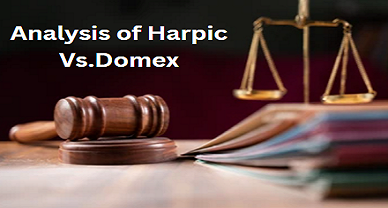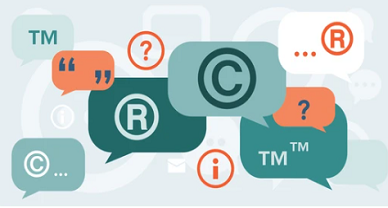Advertisers Freedom To Make Ads
Introduction
The promotion of products through defamatory or misleading remarks about the competitor’s product, known as “product disparagement,” can lead to legal disputes, blurring the line between this and comparative advertising. In contrast, comparative advertising is a legitimate marketing strategy utilized by firms to highlight the superiority of their product over their competitors. To prevent legal disputes, caution must be exercised to differentiate between the two. The recent case of Zydus Wellness Products Ltd. v. Dabur India Limited, which dealt with this issue, clarified that advertisers have the freedom to use generic comparisons and that objection can only be raised if the advertisement is misleading. This article analyzes the implications of the court’s ruling in this case and its importance in the evolving jurisprudence of comparative advertising and product disparagement.
The case pertains to a television commercial (TVC) aired by the defendant, featuring two girls who compete in a 100-meter race and are served orange drinks before the start. The TVC suggests that the girl who drinks the defendant’s “DABUR GLUCOPLUS-C ORANGE” wins the race because the drink contains “25% more glucose in every sip” compared to its competitors. The plaintiff, a market leader in orange glucose powder drinks, took issue with the TVC’s depiction and sought a permanent injunction against it. The plaintiff argued that the TVC misrepresented facts and created the impression that all other glucose drinks, including the defendant’s product, were ineffective. The main issue before the court was whether the TVC disparaged or denigrated the plaintiff’s product (GLUCON-D TANGY ORANGE) or the entire product category.
[Image Sources : Shutterstock]
The court’s initial concern was whether the disputed TVC could be categorized as “comparative advertising.” As per the court, “comparative advertising” refers to an advertisement in which the advertiser explicitly or implicitly compares their product with a competitor’s product or a product category. Furthermore, the advertisement must directly or indirectly identify the referenced product and not be a passing reference. The court observed that in the current case, the plaintiff’s product was not identifiable in any way in the impugned TVC, and instead, the comparison was made with the broad category of orange glucose products.
The court then turned to the issue of whether the impugned TVC was disparaging. The court acknowledged that while the law allows a person to emphasize and promote their own goods, they cannot do so at the expense of belittling and denigrating the goods of others. The court referred to previous cases such as Pepsi Co. v. Hindustan Coca-Cola and Dabur India v. Colortek Meghalaya, which established that the overall effect and intent of the advertisement should be considered when deciding if it is disparaging. Additionally, for a claim of disparagement to be successful, the product of the aggrieved party should be identifiable and recognizable.
The court held that there is a notable distinction between a situation where an advertiser directly compares and denigrates a competitor’s product and a situation where the comparison is merely indirect, allusive, or refers to a wholly unrelated category. The court believed that an advertiser has more flexibility to advertise in the latter circumstances than in the former. The court argued that an artist’s creativity should not be stifled if it promotes or highlights its product’s qualities through a unilateral or relatively general comparison. Additionally, this liberty cannot be restricted solely on the basis that the general comparison refers to a market leader unless there is a case for a recognizable comparison that is entirely false or deceptive. The court therefore concluded that an advertiser should be allowed to present or emphasize its product’s superiority or betterness over competing goods through general comparison as long as it is done without directly defaming or disparaging the competitor or their product. The court stated that the absence of such liberty would significantly reduce the effectiveness of advertising.
The court referred to previous cases, such as Dabur India Ltd. v. M/S. Colortek Meghalaya Pvt. Ltd., Colgate Palmolive Company v. Hindustan Unilever Ltd., and Reckitt Benckiser (India) Pvt. Ltd. v. Hindustan Unilever Limited, where it was held that if there is no explicit or direct mention of a competitor’s goods, it cannot be presumed that the plaintiff’s product is being targeted in a commercial. It also cannot be assumed that the marketing is solely targeted at the market leader based on market share alone. The court applied these principles and concluded that the impugned TVC did not disparage the plaintiff’s product or any other glucose orange drink. The TVC only highlighted the qualities of the defendant’s product. The court noted that consumers are aware that advertisements are inherently biased and one-sided commentaries put out by manufacturers to promote their products. Therefore, the court refused to grant any injunction considering the overall impact of the impugned TVC and the absence of any derogatory remark.
Conclusion
As of now, there is no specific legislation in India that governs comparative advertising. In general, any disputes or conflicts regarding disparagement of the trademark or trade name of registered brands are resolved by the courts and arbitration experts. However, the Trademarks Act of 1999 includes a provision that deals with trademark infringement through unfair and disreputable advertisements created by competitors. Section 29 of the Act specifies that a registered trademark is infringed by any advertising of that trademark if such advertising: (a) takes unfair advantage of and is contrary to honest practices in industrial or commercial matters; (b) is detrimental to its distinctive character; or (c) is against the reputation of the trademark.
Author: Tanya Saraswat, A Student at Himachal Pradesh National Law University, Shimla, in case of any queries please contact/write back to us at support@ipandlegalfilings.com or IP & Legal Filing.
References
- https://www.theippress.com/2023/04/12/advertisers-freedom-to-make-ads-with-generic-comparison-v-s-product-disparagement-where-to-draw-the-line/
https://images.assettype.com/barandbench/2023-01/d3b2debe-5c19-4aea-b74e-b5f6f520ce8b/Zydus_Wellness_Products_Ltd_v_Dabur_India_Limited_.pdf



